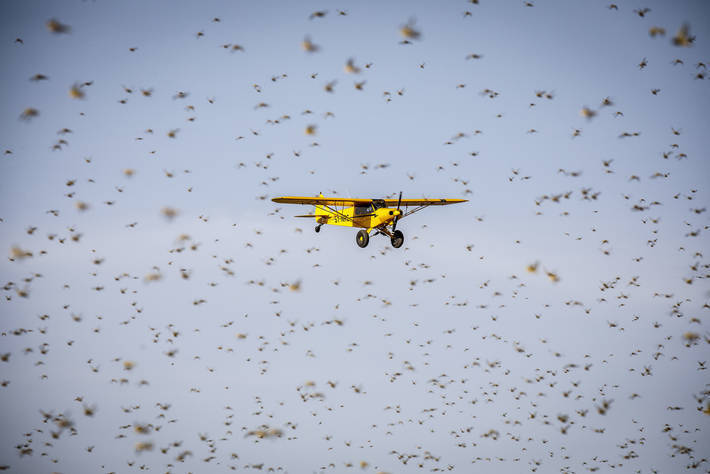
$50bn SDG-targeted investment proposals at SDG Investment Fair
Over 100 SDG-aligned projects with a total investment scope of $ 50 billion have been presented during the ...

The Food and Agriculture Organization (FAO) has received so far $ 18 million out of total $76 million needed to combat locust upsurge in the Horn of Africa and scale up efforts to control the rapid spread of this pest.
The Africa Solidarity Trust Fund (ASTF) has donated $1 million to the Food and Agriculture Organization of the United Nations to combat the worsening Desert Locust upsurge in the Horn of Africa.
The decision came at a meeting of the ASTF Steering Committee at FAO headquarters in Rome on Wednesday.
“We have a window of opportunity before the next planting season. We must act now. Flexible funding, like that of the ASTF, helps us move fast,” said Maria Helena Semedo, FAO’s Deputy Director-General for Climate and Natural Resources, who is currently attending a ministerial briefing on Desert Locusts on the margins of the African Union Summit in Addis Ababa.
“The contribution from the Africa Solidarity Trust Fund presents a timely opportunity calling upon all African countries and resource partners to support the outbreak through the ASTF platform,” said the the ASTF Steering Committee Chairperson, Maria De Fatima Jardim, who is also the Permanent Representative of Angola to FAO.
The Desert Locust is the most dangerous migratory pest in the world and according to FAO’s latest update, the recent upsurge presents an unprecedented threat to food security and livelihoods in Ethiopia, Kenya and Somalia.
The FAO Locust Watch warns that South Sudan and Uganda are now at risk and there is also concern about new swarms forming in Eritrea, Saudi Arabia, Sudan and Yemen as locust infestations continue to grow on both sides of the Red Sea.
The potential for destruction is enormous. A locust swarm of one square kilometer can eat the same amount of food in one day as 35,000 people.
FAO is already working closely with local and national governments and partners, supporting surveillance and control operations and initiating efforts to safeguard livelihoods and assist in the longer-term recovery and resilience of those affected.
However, intensive ground and aerial control operations need to be urgently scaled up to detect and reduce the locust numbers before they spread any further.
Over 100 SDG-aligned projects with a total investment scope of $ 50 billion have been presented during the ...
Global electric car sales are set to hit around 17 million by the end of ...
Ericsson Canada marked the Earth Day by joining the Environment and Climate Change Canada’s (ECCC) Net-Zero ...


اترك تعليقا